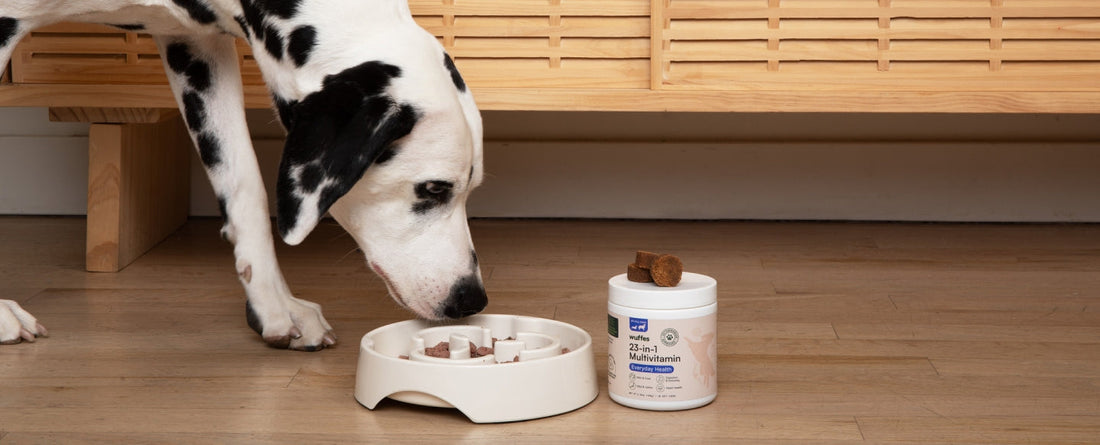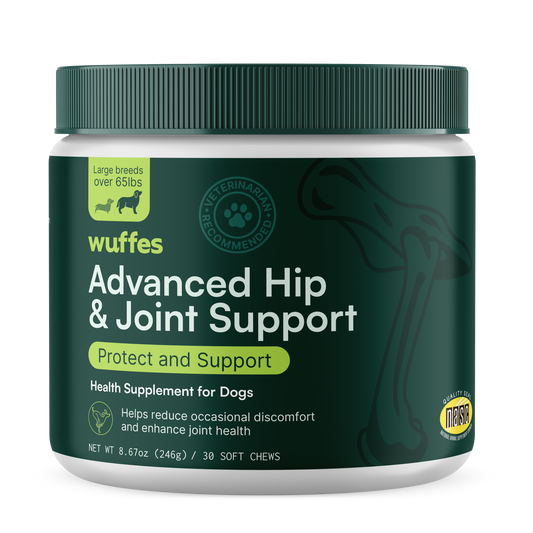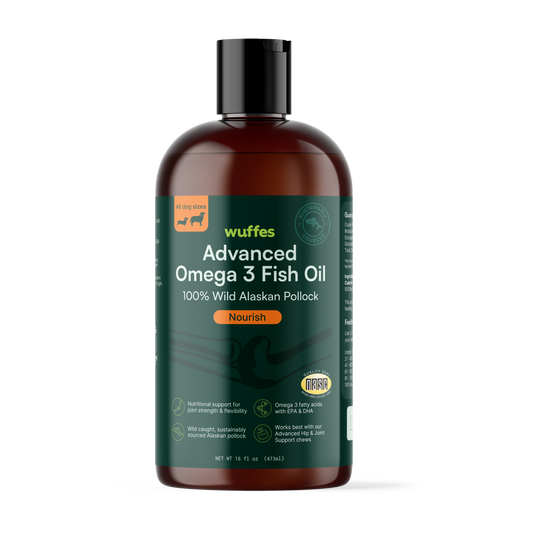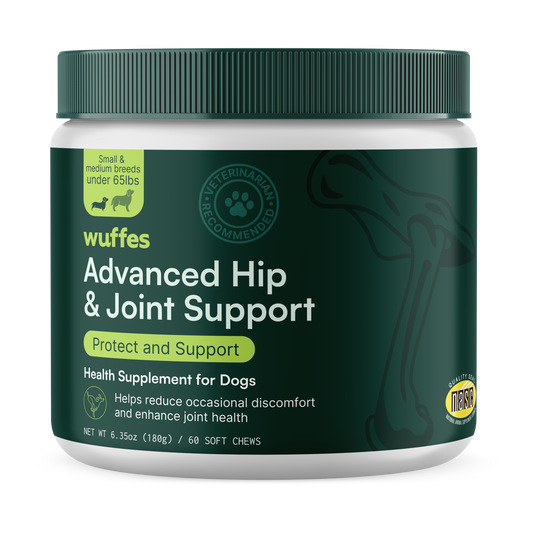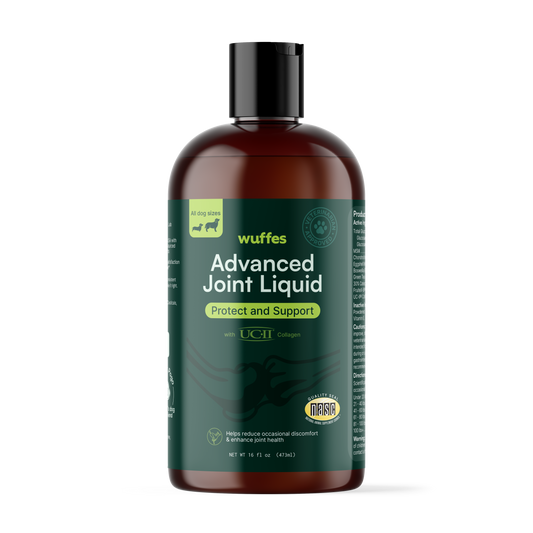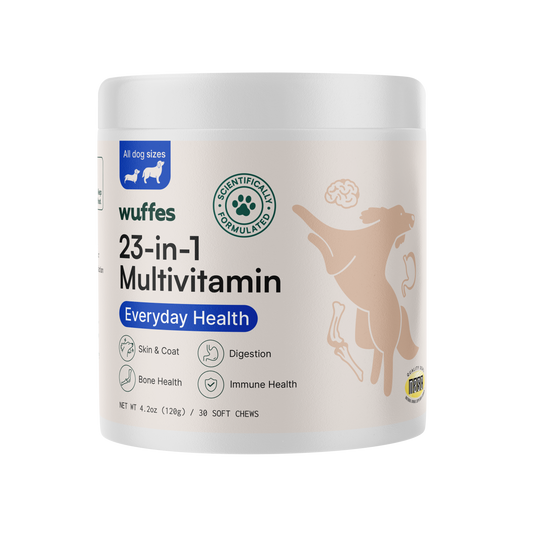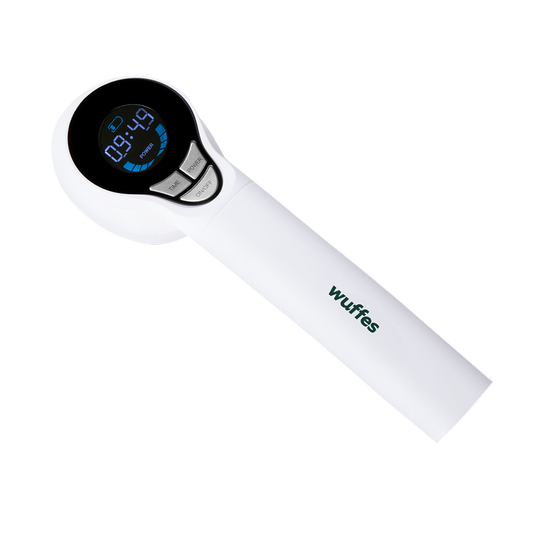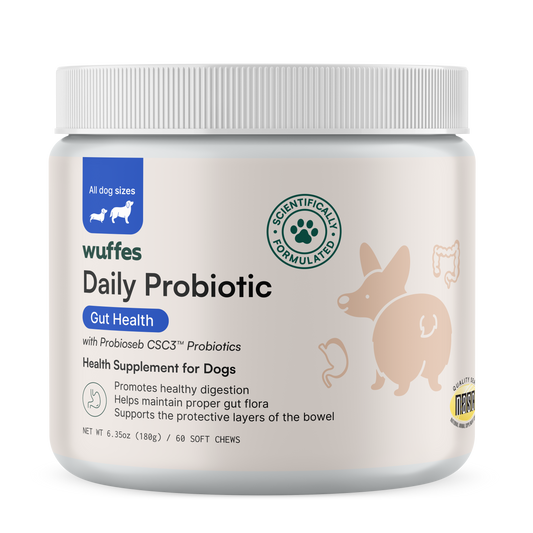As pup parents, we all want the best for our furry friends. We pamper them with love and care, hoping to give them the happy and healthy lives they deserve. That’s why it’s essential to ensure they receive proper nutrition.
Keeping your dog healthy
To help our dogs live long, healthy lives, it’s important to focus on their nutrition and regular exercise. While walking and playtime are crucial for their physical and mental well-being, a nutritious diet is just as important. This includes providing balanced meals that contain carbohydrates, fats, proteins, minerals, and vitamins.
Each dog has unique nutritional needs based on their age, breed, activity level, and any specific health concerns. Understanding these needs can help you determine whether your dog might benefit from additional vitamins or supplements.
What vitamins do dogs need?
Consulting with your veterinarian is always the best practice when considering vitamin supplementation for your dog. High-quality dog multivitamins can offer various benefits, including:
-
Nutritional Support
Multivitamins can help ensure they receive the essential vitamins and minerals needed for overall health. -
Enhanced Immune Function
Vitamins like Vitamin C and Vitamin E play important roles in supporting a healthy immune system. -
Skin and Coat Health
Nutrients found in multivitamins, such as Omega-3 and Omega-6 fatty acids, can promote a healthy, shiny coat and support skin health, reducing issues like dryness or irritation. -
Bone and Joint Health
Vitamins like Vitamin D help maintain strong bones and muscles by supporting calcium and phosphorus balance. This is particularly important for active dogs and those prone to joint issues. -
Healthy Energy Levels
B-complex vitamins support energy metabolism, helping your dog stay active and energetic throughout the day. -
Cognitive Support
Some vitamins, such as Choline, can support brain health, which is especially beneficial for older dogs.
The importance of high quality multivitamins
While some vitamins are essential for dogs, it’s crucial to use supplements specifically formulated for pups. Human vitamins may not provide the right balance for dogs and can potentially cause harm if given in excessive amounts. For example, fat-soluble vitamins like Vitamins A and D can lead to toxicity if not monitored closely.
Always consult your veterinarian before introducing any new vitamins or supplements to your dog’s diet. If your dog is healthy and eating a balanced diet, additional supplementation may not be necessary. However, if your vet identifies a deficiency, they can recommend the appropriate supplements tailored for your dog’s needs.
The bottom line
Providing your dog with a balanced diet and high-quality multivitamins can help ensure they receive the essential nutrients for optimal health. By understanding your dog's specific needs and working closely with your veterinarian, you can make informed decisions that will contribute to their well-being.
Remember, investing in your dog’s health today can lead to a happier, healthier life for your much loved pup tomorrow.
